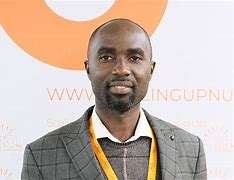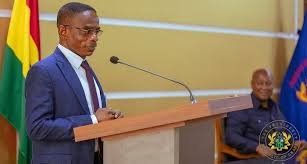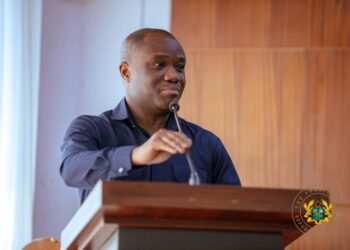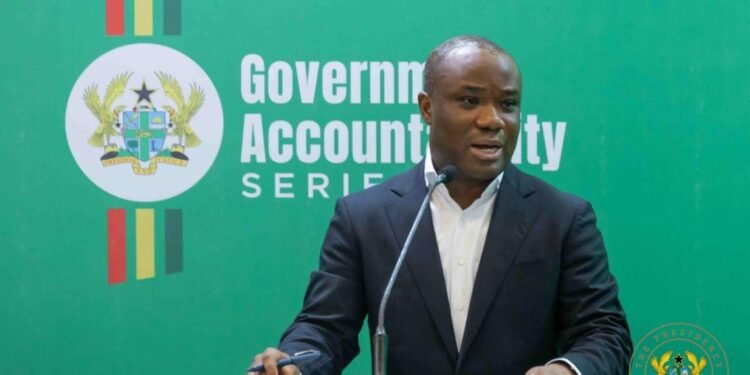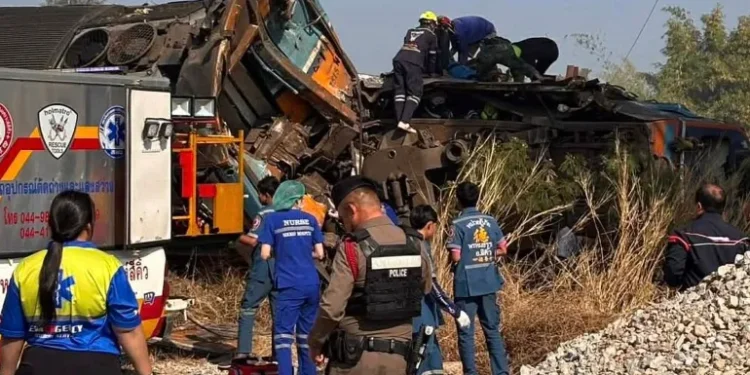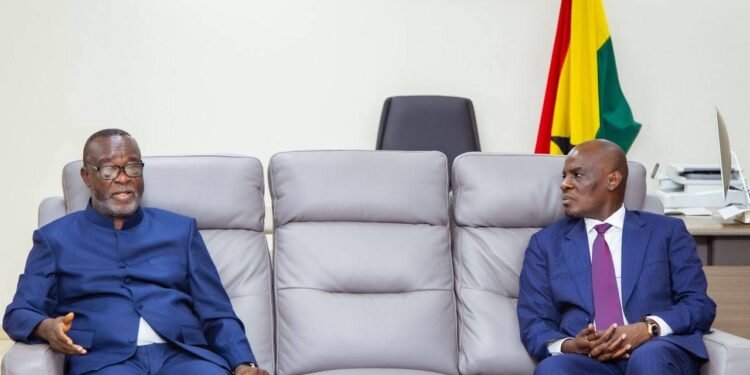A Professor at the University of Ghana’s School of Public Health, Professor Richmond Aryeetey, has stated that coordination at the local level in response to the floods is a bigger challenge.
According to the Professor, coordination across different actors is necessary to forestall any public health crisis.
He added that there is still a need for coordination especially at the local level despite the formation of the inter-ministerial committee.
“The kind of preparation we have and the coordination of this preparedness, I think is an even bigger issue that we need to look at. Though there is an inter-ministerial group that has been formed remember that is strategy. At the local level for implementation, you also need coordination and integration around the response.”
Professor Richmond Aryeetey
Professor Aryeetey further enlightened on the ways of solving the public health issue in the affected areas.

“In public health, one of the key things we do, before we solve any problem, is to find out what the scale of the problem is, what is causing the problem, and define what the problem?
“I think there needs to be a proper public health assessment to see first of all what the condition that you are seeing is. Is it localized, or is it something that is being brought because water is moving from one place to another, and is that what is causing the condition? The fact that you have seen a condition and an exposure does not necessarily mean that the exposure causes the outcome you are seeing.”
Professor Richmond Aryeetey
He reiterated the need for a proper assessment of the problems on the grounds.
“But a proper assessment is what we will need to be able to do that. That I think is left to the disease control office in each of the districts they are. There needs to be some proper coordination also. Because if you see something in one place, you will see it in another place and you see it in multiple places it may be that whatever is happening is coming from the same source. Sometimes is just a localized problem, and then you will know what solution to put to it?”
Professor Richmond Aryeetey
Calls For Relief Upstream
Meanwhile, Rockson-Nelson Etse Kwami Dafeamekpor, Member of Parliament for South Dayi Constituency has called the public and government to avert its attention to the communities upstream that have also flooded.

“You the media men should come in and cover the situation yourself that I am the reporter. I have said enough, I have spoken a lot. It appears that attention is only on the downstream of the south Tongu, central Tongu, and North Tongu but those of us upstream of the dam perhaps have suffered much more than most of those communities.
“So we also need help because you see, somebody who is suffering flood downstream is as important as someone who is suffering upstream. As for the flood, it is a flood. So while we are making efforts to support our colleagues down south, we should also pay attention to those of us [upstream].”
Rockson-Nelson Dafeamekpor
He indicated that over 11 communities in his constituency have been affected heavily.
“So far I have about 11 to 12 communities that have been heavily flooded. These are communities that are located on the lake in the districts. These communities have suffered heavily as a result of the flooding. So in all the estimates that I have, about 5,000 in these communities have been affected.”
Rockson-Nelson Dafeamekpor
He added that his constituents have so far received massive support from the Jesus Christ of Latter-Day Saint Church, some individuals, and NADMO.
READ ALSO: Volta Floods: Stakeholders Urged To Focus Relief Than Audits

